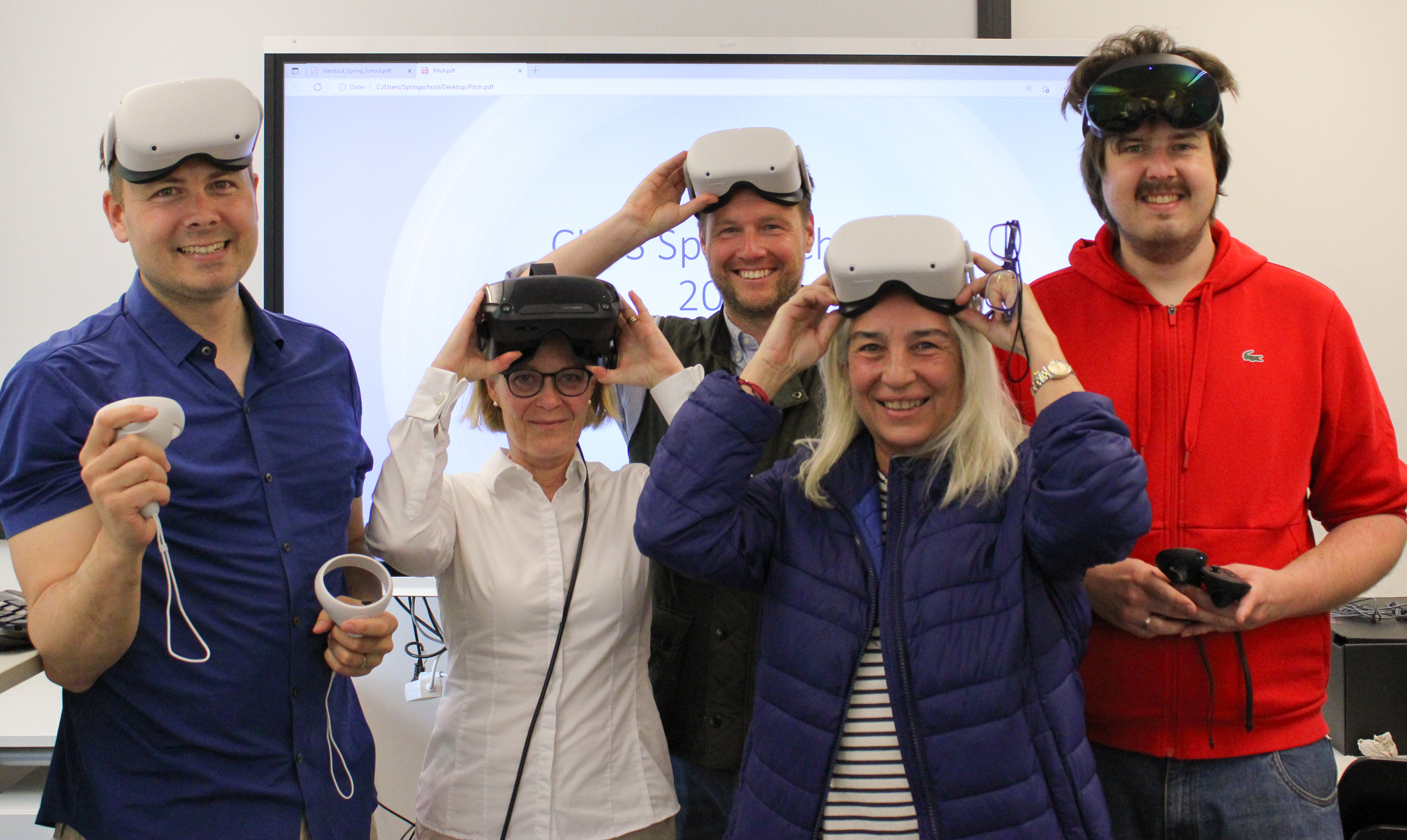On 22 to 26 May 2023, students from various CIVIS universities travelled to Tübingen, Germany for the physical part of our Blended Intensive Programme (BIP) "The heritage of money and coinage: a cross-cultural perspective" Stefan Krmnicek, Annalisa Polosa, Nanouschka Myrberg Burström and Alexander Jost, the organisers of the course, accepted to be interviewed to help academics and students understand what a BIP really is.
What is the agenda this week?
We actually started around six weeks ago with five online sessions in which we discussed diverse topics related to coinage, numismatics and metals in a cross-cultural context.
Last Sunday afternoon, we all met here in Tübingen for our physical component. We started with some rather introductory social activities like city tours of Tübingen and a trip on the river. Then on Monday, we got serious as we had our presentation day. Every student had prepared a presentation on one very particular topic related to their studies. They were very enthusiastic about it and that was a great start!
The second day was our collections day. Students were introduced to the physical properties of money and coinage, so they had the opportunity to really grasp and to feel the materiality, the shape, the weight of ancient coins, coins from the Medieval Age, or modern, contemporary, and non-European monetary concepts. In the afternoon we went for a tour through the Museum of the University of Tübingen.
The organising professors and one Master’s student gave research presentations which contextualised and introduced an excursion to the Neubulach Silver mine and a visit of the mineral museum and historical town center of Neubulach, happening the next day.
Today is the virtual reality day and the students are currently trying VR devices and following a virtual exhibition. They will then learn how to create their own devices and 3D models by scanning objects like coins or statues, without having to code anything.
Tomorrow, we go to the Landesmuseum in Stuttgart where we will follow a guided tour by the creator of the museum, and this will be the final day of our physical component.

This course has already taken place last year in Rome. Did you get the same students this time around?
One student was already there last time but the rest of them are new. We try not to be too repetitive and cover a different topic every year so that students can come back and always have something new and interesting to learn from. We have had twice has many students as last year due to the promotion in CIVIS universities.
Who can apply?
Students are giving a final presentation linking the course to their studies. We do not select students, everyone can come but they still have to find a way to connect their studies to the theme.
What are the advantages of participating in a BIP as a student or academic?
By being given the chance to communicate and to teach this kind of topics in the shape of a Blended Intensive Programme, we are able to get a sufficient number of students for launching the course, which in each individual university would be rather difficult to do.
This particular topic of money and mumismatics is very suitable to be treated as a CIVIS BIP because, even though it is a rather narrow subject, it is extremely interdisciplinary. It covers history, archeology, economy, and even chemistry! We can also integrate teachers and faculty from all these different disciplines. That's actually quite a nice experience to see!
An important part of this course is that the final presentation the students had to make was the first time many of them had presented something in English, and in an international context. They are now creating networks and making friends from lots of different universities and countries.
What’s coming next?
Last year, we had our first event which took place in Rome. This year we are in Tübingen and we have a good chance of holding next years’ session – which will mainly be focused on metals – in Salzburg. And then hopefully in Stockholm!
